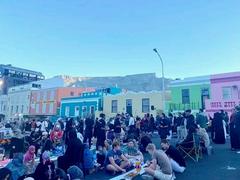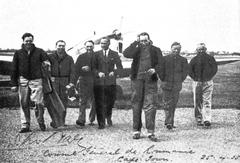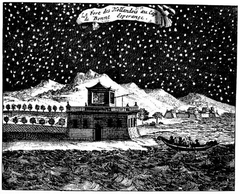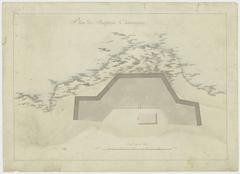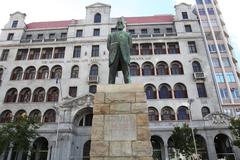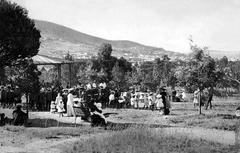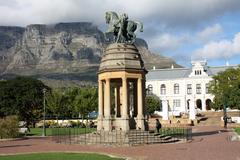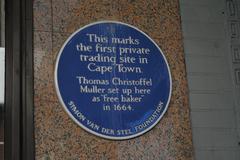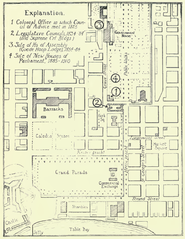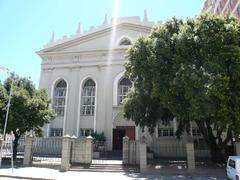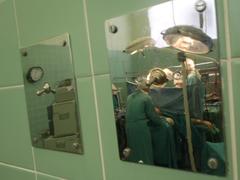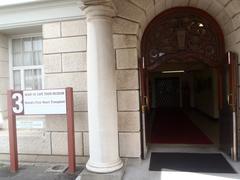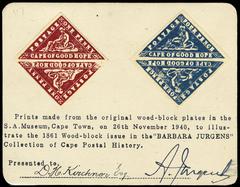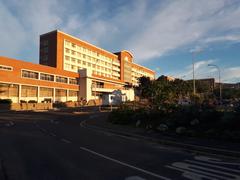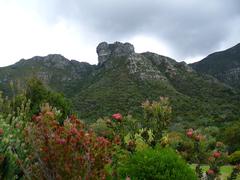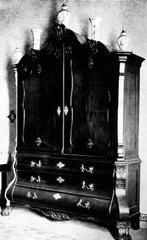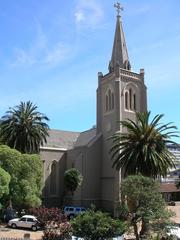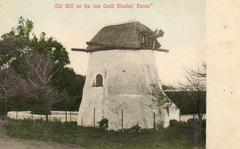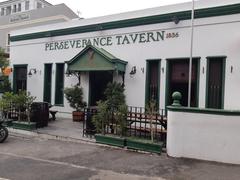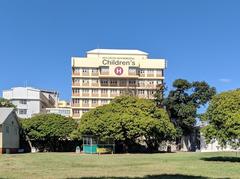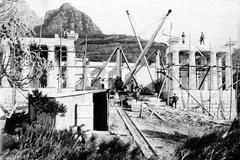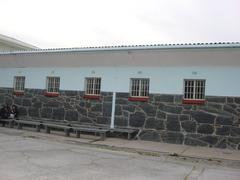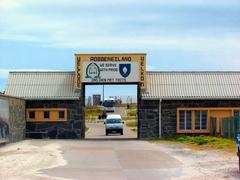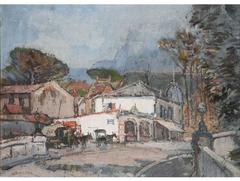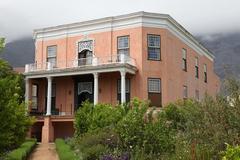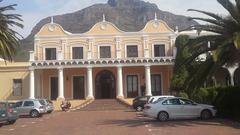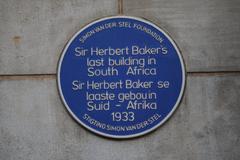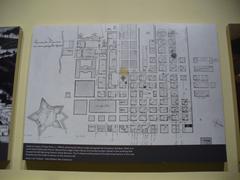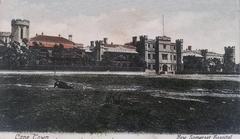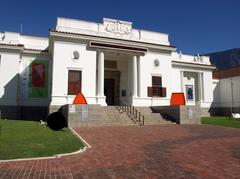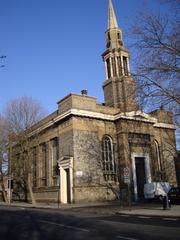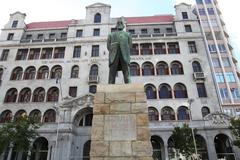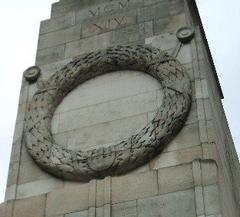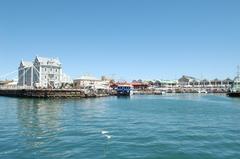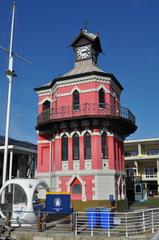Two Minutes of Silence and Remembrance in Cape Town: Visiting Hours, Tickets, and Historical Significance
Date: 14/06/2025
Introduction
The Two Minutes of Silence is a globally recognized tradition of remembrance that originated in Cape Town, South Africa, during the final year of World War I. This practice, first instituted by Mayor Sir Harry Hands on 14 May 1918, began as a response to the losses suffered by local families and communities, and has since grown into a profound global act of collective remembrance. Today, Cape Town’s memorials and ceremonies offer visitors a unique opportunity to connect with this living tradition and the city’s rich military and cultural heritage (samilhistory.com, theheritageportal.co.za, capetown.travel).
This comprehensive guide explores the origins, symbolism, and contemporary observance of the Two Minutes of Silence in Cape Town, provides detailed visitor information for key remembrance sites, and offers practical travel tips for a respectful and enriching experience.
Table of Contents
- Introduction
- Origins of the Two Minutes of Silence in Cape Town
- Symbolism and Global Legacy
- Cape Town’s Memorial Sites: Locations, Visiting Hours & Tickets
- Annual Ceremonies and Rituals
- Accessibility & Visitor Tips
- Cultural Sensitivity and Local Perspectives
- Nearby Attractions
- Visual and Media Resources
- Frequently Asked Questions (FAQ)
- Summary and Conclusion
- References and External Resources
Origins of the Two Minutes of Silence in Cape Town
The Two Minutes of Silence was first observed in Cape Town on 14 May 1918 at the initiative of Mayor Sir Harry Hands, following a suggestion by Councillor R.R. Brydon. The tradition began with the firing of the Noon Gun from Signal Hill, at which point the entire city would pause—trams stopped, pedestrians stood still, and the “Last Post” echoed through the streets. The original silence lasted three minutes before being standardized at two, balancing solemnity with public engagement (samilhistory.com, theheritageportal.co.za).
The tradition quickly spread throughout the British Empire after Sir Percy Fitzpatrick proposed it to King George V, who instituted the silence on Armistice Day, 11 November 1919 (theheritageportal.co.za).
Symbolism and Global Legacy
The Two Minutes of Silence has become a universal symbol of remembrance. The first minute is dedicated to honoring those who died in war, while the second minute is for the living—the survivors, families, and communities affected by conflict (express.co.uk). This dual focus underscores both the cost of war and the enduring impact on society.
Cape Town’s role as the birthplace of this tradition has established the city as a key destination for heritage and commemorative tourism, reflecting on unity, sacrifice, and the pursuit of peace (sanjayfuloria.substack.com, isitaholidaytoday.com).
Cape Town’s Memorial Sites: Locations, Visiting Hours & Tickets
Adderley Street Plinth
- Location: Adderley Street, near the historic Fletcher & Cartwright building.
- Visiting Hours: Open 24/7 as a public street.
- Details: Features a plaque commemorating the first observance with the inscription: “One minute in Remembrance of those who died for their cause; One minute in Gratitude for Survivors.”
- Tickets: No admission required.
Signal Hill Plaque and Noon Gun
- Location: Signal Hill, accessible via Military Road through Bo-Kaap.
- Visiting Hours: Signal Hill public area is open daily from 7:00 am to 7:00 pm.
- Noon Gun Ceremony: Fired daily at 12:00 pm; the Two Minutes of Silence follows at 12:01 pm.
- Details: The Noon Gun tradition dates to 1806, making it one of the world’s oldest continuous military rituals. A commemorative plaque marks the origin of the Two Minutes of Silence.
- Tickets: Free entry, no tickets required (capetownmagazine.com).
Cenotaph in Heerengracht
- Location: Central Cape Town, Heerengracht precinct.
- Visiting Hours: Publicly accessible at all hours.
- Ceremonies: Major annual ceremonies on Remembrance Day (11 November) and other significant dates.
- Tickets: Free; no reservation needed.
Lion Battery Ceremony
- Location: On Signal Hill, overlooking Cape Town and Bo-Kaap.
- Ceremony Time: Arrive by 11:30 am to attend the historical presentation; Noon Gun is fired at 12:00 pm, followed by the Two Minutes of Silence.
- Details: The Lion Battery is open 24/7, but the ceremony occurs once daily. The site offers panoramic city views and interpretive displays.
- Accessibility: Approach via Military Road is steep and winding; limited accessibility for wheelchairs.
- Tickets: Free entry; no advance booking necessary.
Cape Town Museum and Military Cemeteries
- Cape Town Museum: Houses the original proclamation; open Tuesday–Sunday, 9:00 am–5:00 pm. Tickets: ~ZAR 50 for adults, free for under-12s (isitaholidaytoday.com).
- Military Cemeteries: Maitland Cemetery, Delville Wood Memorial—open daily, free entry.
Annual Ceremonies and Rituals
- Remembrance Day (11 November): Main public observance, with ceremonies at the Cenotaph and other memorials. Silence is observed at 11:00 am.
- 14 May: Anniversary of the first Two Minutes of Silence, often marked by local ceremonies at Signal Hill.
- VE Day & Other Dates: Additional moments of silence and commemorations may occur.
Ceremonies typically include the firing of the Noon Gun, the playing of the Last Post, flag lowering, and formal announcements inviting silence. Attendees are encouraged to stand quietly, remove hats, and refrain from using phones or cameras during the silence (lovejoleenphotography.com).
Accessibility & Visitor Tips
- Wheelchair Access: Most public memorial sites are wheelchair accessible, but Signal Hill’s Lion Battery approach is challenging for those with mobility impairments.
- Transport: Use MyCiTi buses or reputable taxis; parking is available near Signal Hill and the city center (capetown.travel).
- Dress Code: Wear modest, respectful clothing. Dress in layers due to changing weather.
- Facilities: Limited at Lion Battery and Signal Hill—bring water and snacks; restrooms available in the city center or Bo-Kaap.
- Safety: Remain vigilant, especially when visiting less crowded sites; use safety apps like Namola (capetown.travel).
- Photography: Permitted before and after ceremonies, but not during the Two Minutes of Silence.
Cultural Sensitivity and Local Perspectives
The Two Minutes of Silence in South Africa has evolved to honor all who have suffered in war, including those affected by liberation struggles and border conflicts. Visitors are encouraged to approach ceremonies with respect, recognizing the tradition’s role in promoting reconciliation and unity across diverse communities (capetourism.com, resource.capetown.gov.za).
Nearby Attractions
- Bo-Kaap: Colorful historic neighborhood known for Cape Malay culture and cuisine.
- Castle of Good Hope: South Africa’s oldest colonial building.
- District Six Museum: Chronicles the history of forced removals during apartheid.
- Table Mountain and V&A Waterfront: Iconic natural and urban attractions.
Visual and Media Resources
- Photographs: Adderley Street Plinth, Signal Hill Plaque, Lion Battery, and Cenotaph.
- Videos: Noon Gun firing and Remembrance Day ceremonies.
- Interactive Maps: Available on capetown.travel and capetownmagazine.com.
- Virtual Tours: Many official tourism sites provide virtual explorations of remembrance sites.
Frequently Asked Questions (FAQ)
When is the Two Minutes of Silence observed in Cape Town?
The most significant observance is on Remembrance Day (11 November) at 11:00 am. The daily Noon Gun ceremony on Signal Hill includes the silence at 12:01 pm.
Do I need a ticket to visit the sites or ceremonies?
No tickets are required for public memorials or ceremonies. The Cape Town Museum charges a small entry fee.
Are the sites wheelchair accessible?
Most major sites are accessible, though the Lion Battery approach is challenging for wheelchairs.
Can I take photographs?
Photography is allowed before and after ceremonies, but not during the Two Minutes of Silence.
Are guided tours available?
Yes, through Cape Town Tourism and local operators. Groups can arrange special presentations with the South African Navy at Lion Battery.
Is it family-friendly?
Yes, but children should be briefed on the solemn nature of the ceremony.
Where can I find up-to-date event information?
Check capetown.travel and capetownmagazine.com for event schedules and details.
Summary and Conclusion
The Two Minutes of Silence stands as a powerful tradition that originated in Cape Town and has inspired a global movement of remembrance and reflection. Cape Town honors this legacy through accessible memorials, daily and annual ceremonies, and a robust heritage tourism infrastructure. Visitors are invited to participate respectfully, observe proper etiquette, and explore the city’s broader historical and cultural landscape.
By engaging with Cape Town’s remembrance sites, you become part of an international community committed to honoring the past and fostering peace for future generations. For guided tours, event updates, and further insights, download the Audiala app and consult official tourism resources.
References and External Resources
- Two Minutes of Silence Cape Town: History, Visiting Hours, and Memorial Guide – Samil History
- Traditional Two Minutes of Silence Remembrance Was First Observed Cape Town – The Heritage Portal
- Why We Should Observe Remembrance Day in South Africa – The Heritage Portal
- Cape Town Official Tourism
- Cape Town Museum – Is It A Holiday Today?
- Visitor Tips for Lion Battery, Signal Hill – Cape Town Magazine
- Heritage and Remembrance Sites – I Love South Africa
- Safety and Visitor Information – Your Cape Town Guide
- Culture in Cape Town – Cape Tourism
- Heritage Cultural Tourism Framework – City of Cape Town
- Why the Two Minutes Silence? – Express
- The 2 Minute Silence – Sanjay Fuloria Substack
- 2 Minute Silence Announcement Wording – Love Joleen Photography

